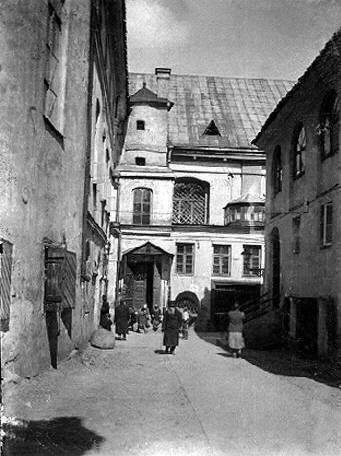
from Ričardas Gavelis
What they say:
Ričardas Gavelis wrote to intimidate and attack, and his novel Vilnius Poker, seldom subtle in its language, demands attention. It is a masterwork of bitterness and sarcasm, one that descends into the self-destructive impulses of those who, though they physically survived the privations inherent to Soviet Russia, were nonetheless emotionally traumatized. Part national rant, part passage into madness, Vilnius Poker is more than a product of the Cold War. It is a condemnation of everything Gavelis thought was wrong with Lithuania, and this first English translation, published twenty years after Poker was originally written, feels fresh.
Vilnius Poker is disorienting, as right from the start Gavelis offers Vytautas Vargalys, an extravagant, energetic narrator whose thoughts shift between the lucid and the figurative. The speaker for the first two-thirds of the book, Vargalys is a survivor of a Russian prison camp where he was physically beaten and emotionally destroyed. His once-brilliant future was ruined by the camps, and he now obsesses and rants about the failures of Lithuania; in fact, so thorough was his transformation that his survival of the camps seems almost futile. As with much of Vilnius Poker, Gavelis never says precisely how Vargalys survived; instead, the inhumanity of the camp haunts Vargalys as he suffers from post traumatic stress—induced flashbacks.
What HE says:
(page 31)
..."I began on The Way against my will. I had already settled down and forgotten all the quests for meaning. Even chest pains no longer upset me - it was just the first ones that were frightening. I no longer tormented myself if I didn't feel the slightest desire when I saw an ideally sexy woman. I was forty-three years old..."
(Page 43):
"Only those who have lost their spirit fear the monsters of the interior. Only those who have lost their balance pretend their insides are pure and refined. You can only become truly great by joining your heaven with your hell. All of the good in people is the same but the kingdom of evil is different in everyone."
(Page 54):
"That he could even have those kinds of feeling surprised me, but I quickly figured it out. He was afraid to be left forgotten and alone, to fail to attract others' attention for even a second. Every person who still has a thing or two left inside is able to be alone with himself. There was nothing inside this lumbering figure that could be relied on. He no longer had himself, so a secret fear constantly gnawed at him..."
(Page 77):
"It is the Vilnius Basilisk's gaze, piercing me every morning, a morning that begins with the overcrowded trollybus, the crush of figures, the jounrey from non-existence into none-existence: from the drabness of dreamless sleep to the unthinking work machine. It's only by Their will that the tired figures with puffy eyes cram into iron boxes with fly-covered windows and slowly creak towards their daily bondage. The day begins with smells: the stink of rancid sweat and cheap soap, the stench of last night's drinking, and a whiff of nightmares...."
And after that, just try and imagine what it was like all those years, winter, summer, good weather, shite weather, always under the gaze of communism, all lives for generations lived under that shadow. No matter what you're doing now, that was their reality then. Imagine that. Miserable yet still trying to live life, still trying to fart out a few joys...

Geen opmerkingen:
Een reactie posten